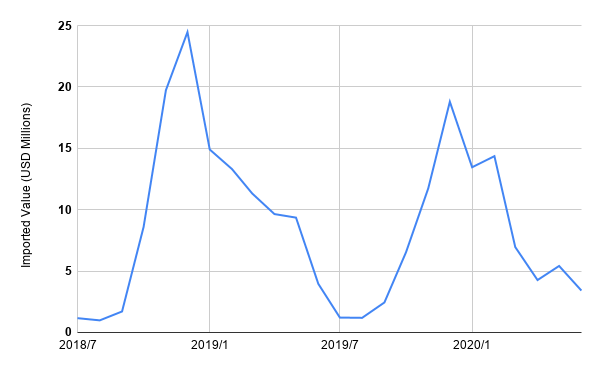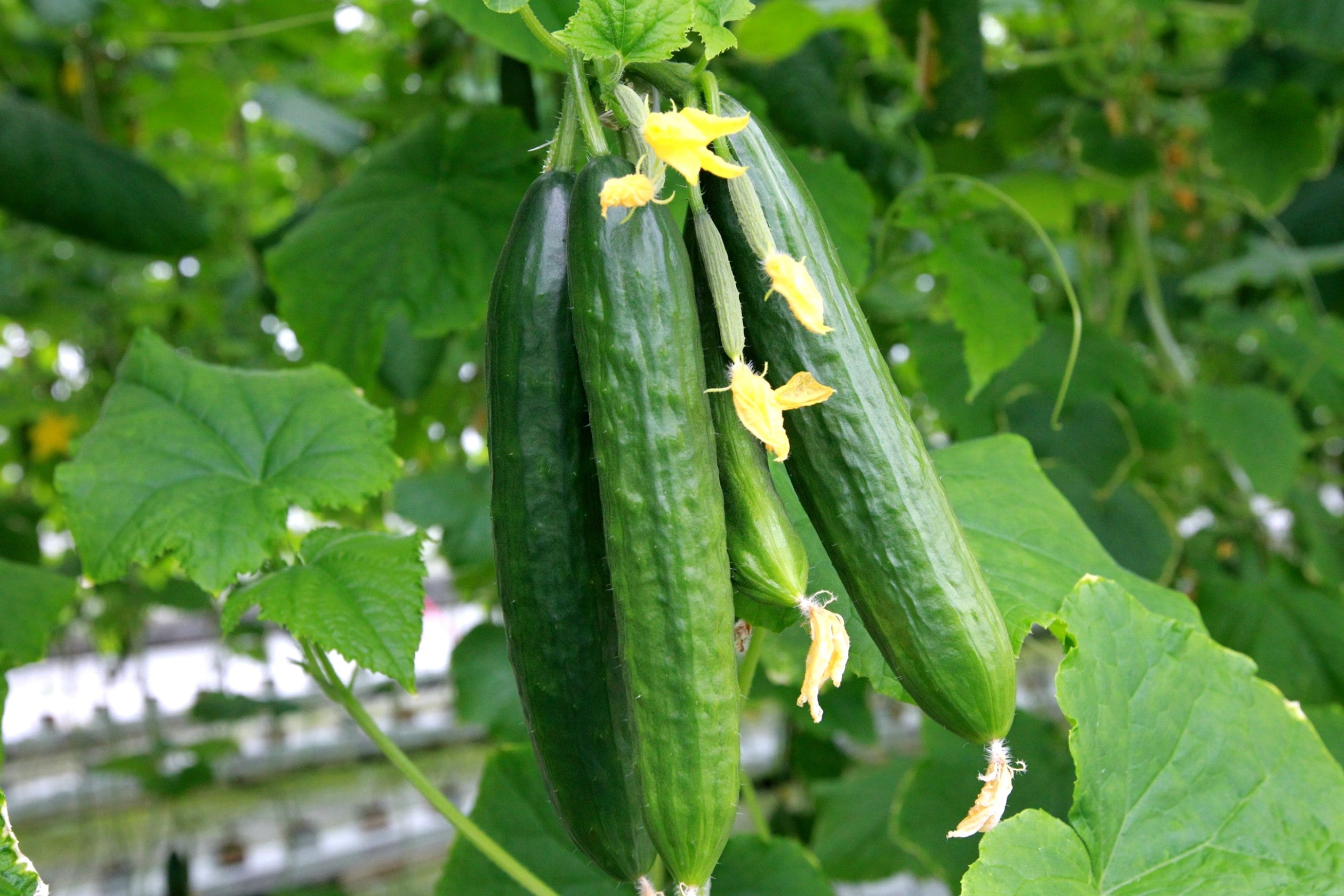Russia Moves Toward Self Dependency for Vegetables - Cucumber Imports Decrease
As a highly import-dependent country, Russia has accumulated an annual import value of USD 5 billion for fruits and vegetables, according to World Food Moscow. Efforts have been made to achieve greater food self-sufficiency since 2015, which has not seen significant changes until recently. Within Russian vegetable imports, cucumbers (HS: 0707) take up a significant percentage, recording USD 104 million in imported value in 2019, resulting in Russia becoming the fifth-largest importer in the world.
In October 2020, however, an announcement was made by the Greenhouses of Russia stating that 20% more vegetables were produced domestically than the previous year, where cucumber production has increased by 18%, with 614K tons. By the end of 2020, more than half of the domestic need for vegetables is expected to be fulfilled, and in four years, nearly 84% will be met, at this rate.
Graph 1. Russian imported value of cucumbers and gherkins, fresh or chilled 2018-2020.

Source: ITC Trade Map.
Russia Blocks Imports, More Investments in Domestic Agriculture
The success of Russia’s withdrawal from imports stems from a combination of three elements: one, increased state support, and two, Russia’s quarrel with the EU, the US, and Western countries, which have resulted in a ban in many of the agricultural imports from those countries, and three, the depreciation of the Ruble, which has made imports costlier. State support came in the form of investments for better technology to produce greater yields and also for the creation of a better environment for farmers to ease production, such as granting subsidized loans.
In 2014, Western countries imposed economic sanctions on Russia, and in return, Russia shot back with a food import ban on agricultural goods; the ban will last until the end of 2020. Further measures took place as well, such as in early April of this year when the Russian government decided to restrict cucumber and tomato imports from countries other than the EAEU.

Increasing Domestic Market Share
The result of the import ban has wielded some negative effects domestically, including causing price hikes as imports were slashed. Nonetheless, this has reduced competition from foreign imports, and, with the added governmental incentives, cucumber and other vegetable production have grown in market share. Out of all the other types of produce, cucumber has been one of the most successful in gaining self-sufficiency, as it only needs imports during the winter season, and imports have taken roughly 8% in the Russian market share in 2017-18 according to the Federal Customs Service.
Other produce, such as tomatoes, which relies the most on imports (31.1% of market share in 2017) compared to other types of produce, could face the same fate as cucumbers as Russia cuts down on external sources of food.
Sources
- Agroxxi. “Import of greenhouse cucumbers to Russia is declining and will be so in the future.”
- USDA. "Russia restricts imports of cucumbers and tomatoes for state and municipal purposes."
- World Food. "Where does Russia Import Fruits & Vegetables from?"
- Bloomberg Opinion. "Russia is an emerging superpower in global food supply."
- Flanders. "Vegetable growing sector in Russia."





